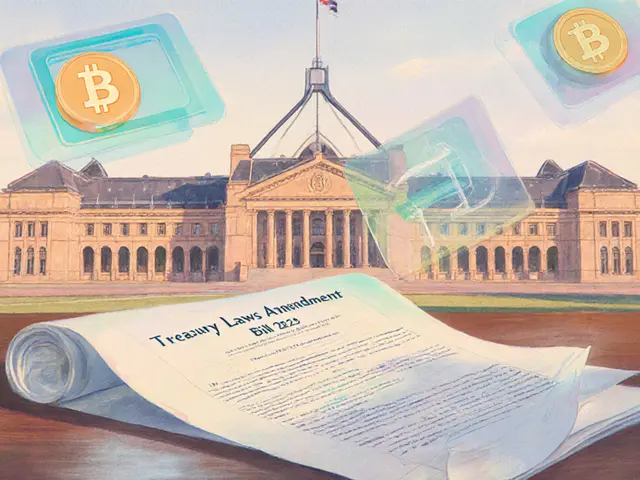MAS Crypto Regulation
When dealing with MAS crypto regulation, Singapore’s Monetary Authority of Singapore rules that govern crypto assets, exchanges, and token offerings. Also known as Singapore crypto regulatory framework, it sets licensing standards, anti‑money‑laundering checks, and market‑integrity safeguards. A major piece of the puzzle is cryptocurrency taxation, the tax obligations for crypto transactions under Singapore law, which determines how individuals and businesses report gains and losses. Equally important is consumer protection regulations, rules that ensure crypto service providers treat users fairly, disclose risks, and maintain adequate security. Finally, the push toward a central bank digital currency (CBDC), a digital version of the national currency issued by the central bank ties directly into MAS’s broader digital‑finance strategy. MAS crypto regulation therefore sits at the intersection of licensing, tax compliance, consumer safeguards, and future digital money initiatives.
Why These Elements Matter Together
MAS crypto regulation encompasses licensing rules that require exchanges to register, hold sufficient capital, and implement robust KYC/AML procedures. This licensing framework influences cryptocurrency taxation because only registered entities can provide reliable transaction records, making tax reporting more accurate. At the same time, strong consumer protection regulations reduce the risk of fraud, which helps maintain market confidence and, indirectly, the tax base. The development of a CBDC adds another layer: by issuing a state‑backed digital currency, MAS aims to streamline payments while keeping a clear audit trail, which could simplify future tax enforcement and consumer dispute resolution. In practice, a crypto project looking to launch in Singapore must navigate all three—secure a license, understand the tax implications, and comply with consumer‑first policies—before it can even consider integrating with the upcoming CBDC ecosystem.
Below, you’ll find a curated set of articles that break down each of these pieces. From deep dives into how Singapore taxes crypto trades, to analyses of new consumer‑protection rules, to updates on the country's CBDC plans, the collection offers practical insights you can apply right away. Whether you’re a trader, a startup founder, or just curious about how Singapore’s regulator shapes the global crypto scene, these pieces will give you the context you need before you explore the detailed posts that follow.

MAS tightens Singapore's crypto rules, limiting new DTSP licences, enforcing AML/CFT standards, Travel Rule, and hefty penalties after a June 30, 2025 deadline.
Jonathan Jennings Oct 13, 2025




